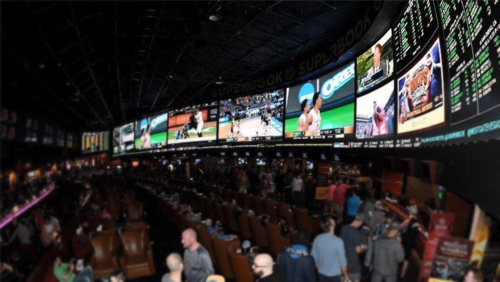More Americans think sports wagering should be legal compared to those who think otherwise, according to an East Carolina University (ECU) survey.
 47% of the 1,152 respondents who took part in the poll from May to July 2018, agreed to a statement that gambling on professional sports should be legal. 26% disagreed, while 27% neither agreed nor disagreed.
47% of the 1,152 respondents who took part in the poll from May to July 2018, agreed to a statement that gambling on professional sports should be legal. 26% disagreed, while 27% neither agreed nor disagreed.
“Current levels of public support, particularly among both self-identified Democrats and Republicans, suggest that the prospects are clearly more favorable than unfavorable for additional states, and even the federal government, to pass laws that further legalize sports gambling,” the ECU Center for Survey Research said in its report.
The U.S. Supreme Court’s lifting of the federal ban on sports betting last May has opened states to the market, though only a handful have actually passed legislation on the matter so far.
Differences in sex, age, and income had a greater correlation to respondents’ answers, than a difference in political affiliation. It was found that 50% of Republicans and 48% of Democrats agreed with sports betting being legal. Agreement was lowest for self-identified independents, at 41%.
“Republicans are both the most likely to support and the most likely to oppose the legalization of professional sports gambling because they are the least likely to express neither agreement nor disagreement on the issue,” the ECU report read.
57% of male respondents agreed with the statement that sports betting should be legal, while only 38% of women thought so as well. According to the report, the difference in opinion “may stem from the fact that men already tend to gamble more frequently than women.” Even so, more women supported legal sports betting, as only 30% thought it shouldn’t be legal, and 32% expressed no preference.
Americans aged 75 or older were least likely to agree to sports betting being legal, with only 28% amenable to the idea, compared to 57% among those aged 18 to 24.
There also seemed to be a divide among more affluent Americans, wherein 57% of those with household incomes of over $120,000 a year supported legal sports betting, compared to 47% in the next bracket. “[I]t is worth emphasizing that across all income groups, there is considerably more agreement than disagreement for the legalization of professional sports gambling. Nonetheless, it does appear that income is relevant to understanding public opinion on the issue,” the report read.
The researchers pointed out how opinions have changed in the past four decades, with only 27% in favor of legal sports betting in 1975. The figure went up to 41% in 1993, and to 46% last year, according to a Sharkey Institute poll.
The ECU survey was conducted across the 50 U.S. states, as well as in the District of Columbia.